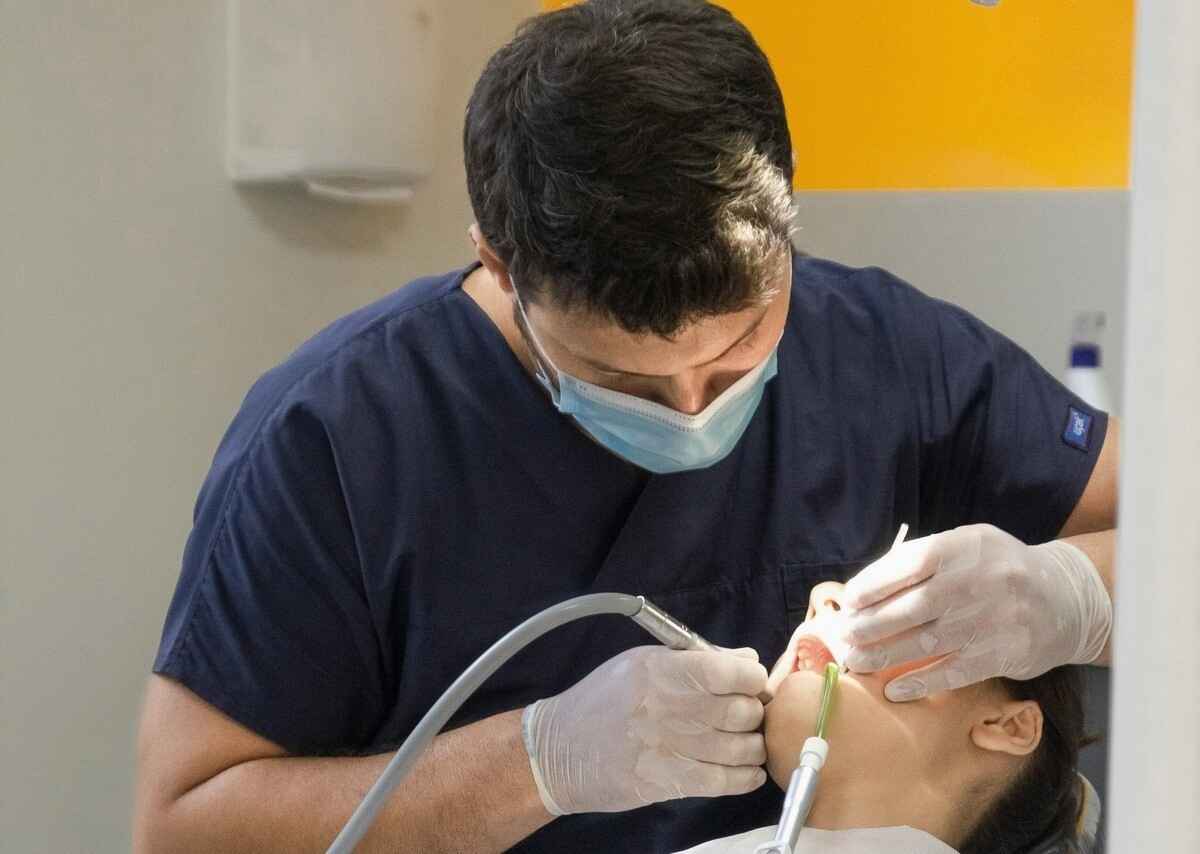It might sound surprising, but yes – even we, as practitioners, can feel nervous about dental appointments. It’s not always easy to admit that. The moment you cross over from provider to patient, things shift. Suddenly you’re the one lying back in the chair, hearing the sound of instruments, waiting for someone else to take the lead. It brings back memories, sensations, and sometimes even fears that you thought were long gone.
Over the years, I’ve come to understand that anxiety about the dentist isn’t just reserved for patients who’ve had bad experiences. Sometimes it’s rooted in something more subtle, the vulnerability of not being in control, the anticipation of discomfort, or even just the sterile quiet of the waiting room. As someone who has walked on both sides of this experience, I’ve learned that knowing how to not be anxious at the dentist isn’t about eliminating fear completely. It’s about learning how to soften it.
If you’ve ever felt nervous about dental visits, you’re definitely not alone and there’s no shame in it. Check out why fear of the dentist doesn’t mean you’re weak.
In this post, I want to share what has helped me, both personally and professionally, when it comes to staying calm at the dentist. This isn’t a checklist. It’s more like a collection of thoughts, practices, and small reassurances that have made the experience a little more bearable for me, and hopefully, for you too.
Why Even Dentists Can Feel Nervous
It might seem unexpected, but fear of the dentist is more common than you think: and yes, even among those of us who work in the field. Being a practitioner doesn’t automatically shield us from the same feelings of nervousness or discomfort that many patients experience. Sometimes, the very things that trigger anxiety for others affect us too: the loss of control, the sharp sounds of dental instruments, or memories from earlier dental visits that didn’t go smoothly.
Fear can come from past trauma, or simply from the overwhelming sensory experience of bright lights, unfamiliar smells, and the vulnerability of sitting in the dental chair. These feelings don’t discriminate, they don’t vanish just because you understand the procedures or know the terminology.
So, how do we get over fear of the dentist? For me, it starts with acceptance: recognizing that the fear is valid and not a sign of weakness. Gradually, small steps like communicating openly with the dentist, focusing on calming techniques, or simply scheduling shorter, less invasive visits can help soften that anxiety over time.
Avoiding the dentist because of anxiety can have serious consequences, and here’s what happens if you skip appointments for years.
It’s not about rushing to eliminate fear, but learning how to manage it patiently and with kindness toward yourself. Also, understand that if you’re searching for how to get over fear of the dentist, remember that gradual exposure and patience are key sometimes.
Knowing How to Be Calm at the Dentist Can Transform Your Experience
When I think about how to be calm at the dentist, I realize it’s never been about ignoring my anxiety: it’s about facing it gently, with small strategies that make a difference. Fear thrives in silence, but once we start talking about it and using real techniques, the nervousness begins to lose its grip.
- One of the very first things I do, and recommend to anyone struggling with dental anxiety, is speaking up. Before the appointment even begins, I make sure to share how I’m feeling with the dental team. Whether it’s a past bad experience or just that uneasy feeling in my stomach, admitting it out loud helps break the tension. A good team will listen and respect your concerns, making the experience feel less like a mystery and more like a collaboration.
- Breathing deeply and slowly is another powerful tool. When my heart starts racing, I focus on calming my nervous system with steady breaths, in through the nose, out through the mouth. It sounds simple, but it really works.
- Distractions can be a game-changer too. Music, podcasts, or guided meditations through headphones help me shift my focus away from the sounds and sensations around me. Many dental offices offer headphones, or you can bring your own favorites.
- And don’t underestimate the power of control. I always agree with my dentist that if I raise my left hand, treatment pauses immediately. This simple signal gives me the confidence to stay present, knowing I can take a break when needed.
- Sometimes, having a friend nearby – even just in the waiting room, helps ground me. If possible, bringing them into the office to share a light moment can ease the tension and remind me I’m not alone.
What I Tell My Own Patients About Dental Anxiety
If you’re thinking about how to not be anxious at the dentist, the first thing I want you to know is this: your fear is completely valid. Anxiety around dental visits is more common than many realize, and it doesn’t mean there’s anything wrong with you. As practitioners, we see this every day and want you to feel supported, not judged.
For many people, the fear of sitting in the chair is deeply tied to embarrassment over how their teeth look. If this sounds familiar, you might appreciate this deeper reflection on being scared to go to the dentist because of bad teeth.
But here’s how to not be anxious at the dentist, based on what truly works from both my experience as a provider and what I’ve seen help patients over time.
First, be open with your dentist about your anxiety. Sharing your feelings before the appointment starts can make a big difference. When your dental team knows what’s going on, they can adjust the pace, explain every step clearly, and offer reassurance. This openness builds trust and gives you a sense of control.
Scheduling your appointment early in the day can also help. Morning visits often mean less waiting time and a fresher mindset, reducing the buildup of nervous energy. It’s a simple but effective trick to ease anxiety.
Bringing calming items with you is another practical tip. Whether it’s headphones with your favorite music, a stress ball, or even a comforting photo on your phone, these small things can ground you and create a familiar space in an unfamiliar setting.
Remember, you’re not alone in this. Many patients have felt the same way and found these strategies helpful. Taking small steps to communicate and prepare can transform your dental experience from one filled with fear to one where calm and confidence grow.
How to Get Over Fear of the Dentist, Gently and Gradually
Fear of the dentist doesn’t disappear overnight, and that’s perfectly okay. Healing and confidence build slowly, step by step. The most important thing to remember is to be kind to yourself throughout the process. Progress doesn’t need to be fast or perfect; it just needs to be consistent.
If you’re wondering how to get over fear of the dentist, start by allowing yourself small, manageable exposures rather than forcing a big leap. This might mean simply calling the dental office to ask questions, visiting the clinic just to say hello, or scheduling a quick, non-invasive checkup. Each small step builds familiarity and trust, helping your nervous system adjust without feeling overwhelmed.
There’s no need to rush. Respect your limits, and celebrate the victories, even the tiniest ones. Sometimes, just sitting in the waiting room without judgment is a huge success. Other times, a routine cleaning can feel like a breakthrough.
Along the way, practice self-compassion. Understand that fear is your mind’s way of protecting you, even if it feels frustrating or unfair. By facing it gently, you give yourself permission to heal on your own terms.
Remember, breaking the cycle of fear is possible — one visit at a time. You don’t have to do it alone, and there are caring professionals ready to support you every step of the way.
What to Do If Your Fear Feels Overwhelming
It’s surprising how simple practices can help patients learn how to be calm at the dentist, even if anxiety feels overwhelming at first. For some patients, key is in these simple techniques that we can practice from day one. But, if we want to think about everything, then situation can be more complex for some individuals.
Sometimes, dental anxiety runs deeper than occasional nervousness, and that’s okay. As practitioners, we understand that for some, fear can feel all-consuming, creating a barrier that’s hard to overcome alone. Recognizing this is not a weakness but a courageous first step toward finding the right kind of help.
When anxiety feels overwhelming, sedation dentistry can be a valuable option. It allows you to receive the care you need while feeling relaxed and safe. Many clinics today focus on patient comfort and offer tailored sedation choices that respect your pace and preferences.
Beyond sedation, therapy, especially cognitive behavioral therapy (CBT) — has proven incredibly effective in addressing dental phobia. Working with a trained therapist can help you unpack the root causes of your fear and develop coping strategies that last a lifetime. This approach acknowledges that fear isn’t simply “in your head” but a genuine response that deserves attention.
Patient-focused clinics are becoming more common, where emotional well-being is as important as physical health. These environments prioritize open communication, empathy, and gradual exposure, making the dental experience less intimidating.
How to Not Be Anxious at the Dentist — When It’s More Than Just Nerves
If your fear feels bigger than “just nerves,” it’s important to remember: you are not alone, and it’s absolutely okay to ask for help. Therapy and sedation dentistry are among the tools that can support those wanting to get over fear of the dentist. Reaching out for support—whether through sedation, therapy, or finding a compassionate provider—is a step toward reclaiming your peace of mind. You deserve dental care that respects your feelings and honors your journey toward healing.
Your Fear Is Real — But So Is Your Strength
You’re not alone if you’re wondering how to not be anxious about the dentist. I’ve been there too. Even as practitioners, we know how real that fear can feel, and it’s important to remind yourself that your feelings are valid. Anxiety doesn’t mean you’re weak — in fact, acknowledging it takes a lot of courage.
If this post resonated with you, feel free to share your thoughts or experiences in the comments below. Sometimes, just knowing others understand can lighten the burden. You might also find comfort in reading related posts where we explore dental anxiety and ways to make your visits easier.
And above all, don’t hesitate to talk openly with your own dentist about how you’re feeling. We’re here to listen and help you feel safe every step of the way.
Remember, many of us face these challenges, and with time, patience, and the right support, it’s possible to move past the fear. Your strength lies in taking small steps, speaking up, and allowing yourself to be supported. Learning how to not be anxious at the dentist often starts with small steps and open communication with your care team
References:
- Matsuoka H, Chiba I, Sakano Y, Toyofuku A, Abiko Y. Cognitive behavioral therapy for psychosomatic problems in dental settings. Biopsychosoc Med. 2017 Jun 13;11:18. doi: 10.1186/s13030-017-0102-z. PMID: 28630646; PMCID: PMC5470220.
Selam Omerkić, DMD, is a practicing dentist and editor of Your Dentista. With clinical experience in private practice, Dr. Omerkić is dedicated to improving public oral health through evidence-based practice and patient education. He holds a dental degree from the University of Sarajevo and brings an international perspective to dentistry through collaboration and professional exchange. His work aims to make trustworthy, research-backed dental information accessible to all.



3 thoughts on “I’m a Dentist — Here’s What I Do When I’m Nervous About Going to the Dentist”
Comments are closed.